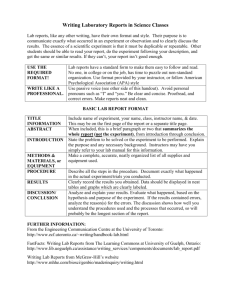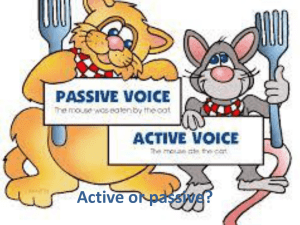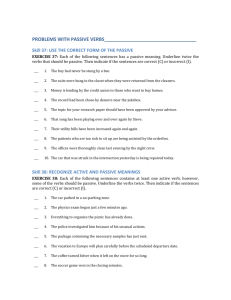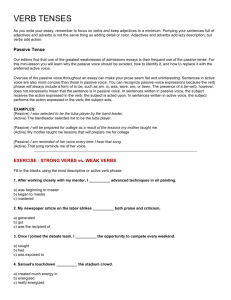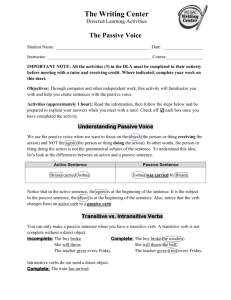1/27-1/28 Do Now #46 Active and Passive Voice A verb is said to be
advertisement
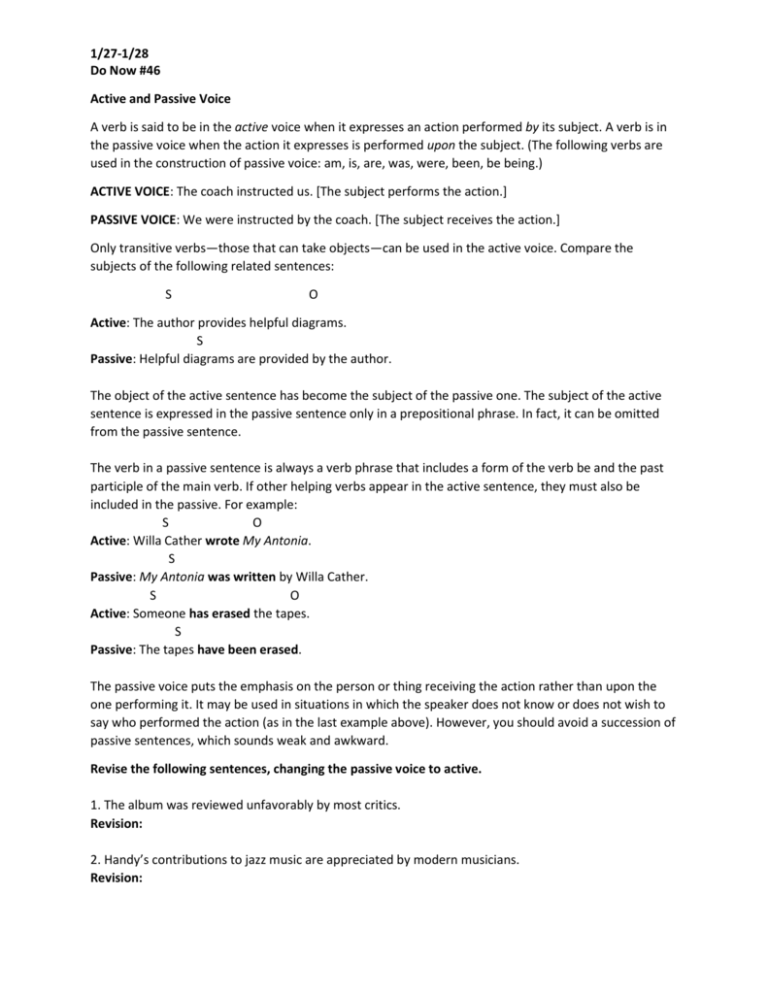
1/27-1/28 Do Now #46 Active and Passive Voice A verb is said to be in the active voice when it expresses an action performed by its subject. A verb is in the passive voice when the action it expresses is performed upon the subject. (The following verbs are used in the construction of passive voice: am, is, are, was, were, been, be being.) ACTIVE VOICE: The coach instructed us. [The subject performs the action.] PASSIVE VOICE: We were instructed by the coach. [The subject receives the action.] Only transitive verbs—those that can take objects—can be used in the active voice. Compare the subjects of the following related sentences: S O Active: The author provides helpful diagrams. S Passive: Helpful diagrams are provided by the author. The object of the active sentence has become the subject of the passive one. The subject of the active sentence is expressed in the passive sentence only in a prepositional phrase. In fact, it can be omitted from the passive sentence. The verb in a passive sentence is always a verb phrase that includes a form of the verb be and the past participle of the main verb. If other helping verbs appear in the active sentence, they must also be included in the passive. For example: S O Active: Willa Cather wrote My Antonia. S Passive: My Antonia was written by Willa Cather. S O Active: Someone has erased the tapes. S Passive: The tapes have been erased. The passive voice puts the emphasis on the person or thing receiving the action rather than upon the one performing it. It may be used in situations in which the speaker does not know or does not wish to say who performed the action (as in the last example above). However, you should avoid a succession of passive sentences, which sounds weak and awkward. Revise the following sentences, changing the passive voice to active. 1. The album was reviewed unfavorably by most critics. Revision: 2. Handy’s contributions to jazz music are appreciated by modern musicians. Revision:
